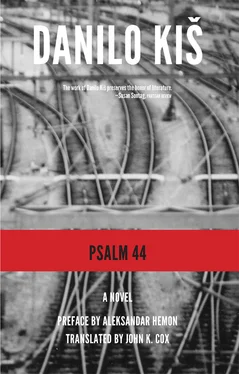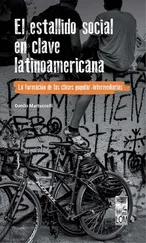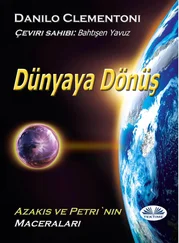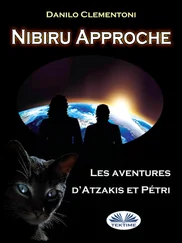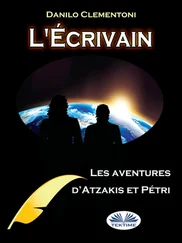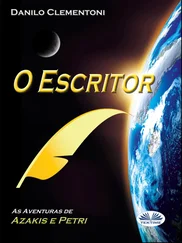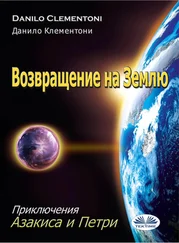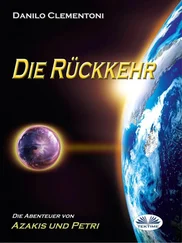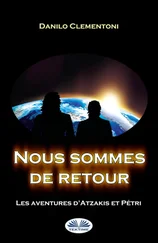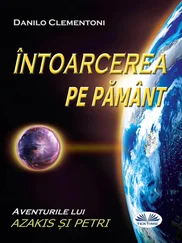“I’m going to try to sleep,” and then — as if doing so would hasten the answer and ultimately the decision about which Žana was thinking and in the absence of which it didn’t seem to her (Marija) that she could think of anything else or do anything else, not until whatever it was came out, whatever it was concerning herself and those three other women, for little Eržika Kon had been among them at first, Eržika Kon who had earlier, one night, hurled herself at the wire and fallen, riddled with bullets, forgetting everything, because that’s what death is, To forget everything , she thought — she asked: “What time could it be?” as if through this question the hand of death or at least its sister would be summoned to close her tired eyes, but with this question resistance was born in her consciousness, as a consequence of some dim recollection of the ultimate interconnectedness of forgetting-death-sleep-and-time and her consciousness, which set this whole causal chain in motion and must rank highest in its hierarchy, hand-in-hand with time.
“I don’t know,” Žana said, but then, as if resistance had been awakened in her too, she went on to say, as though picking up a forgotten weapon: “I think it’s past eleven. I don’t think it’s any later than that.” Then like a buoy it popped up to the surface, that which until this moment had filled the gloom and which now all at once crystallized and condensed into the space of two or three words in a whisper: “Tonight we’ll try.”
And even before Marija succeeded in turning her thoughts to anything specific, to being fearful or overjoyed, to crying out or to screaming or all of it together in the inferno that was the tumult of her mind and the chaos of her organism, in the savage circulation of blood that cascaded throughout her body like some hot, interior wave leaving behind on the shore the broken and disordered remnants of thought (only the briefest glance at the innumerable associations that were saturating and trampling each other) as well as the secretions of her glands and ovaries — even before she managed to realize that she was trembling on the edge of unconsciousness in this intense assault, Žana added what it was no longer necessary to say: “I didn’t want to tell you right away. I was thinking you should get some sleep. You need to be fresh.”
In that way she kept Marija from thinking about Polja and from feeling sorry for her, or repentant: Žana had with her words simply wiped Polja away by not mentioning her; she didn’t even refer to her as “Poor Polja,” which again would have signified something; instead she simply said we will try , and in this we nothing and no one else could be present save the three of them, that is, Žana, Jan, and Marija: to wit, only the living, and Polja was already beneath a shroud. But Marija could still sense Polja, not because of her quiet gurgling, which was no longer communication in any earthly language but simply a slight whisper in the tongue of death itself; rather Marija could sense her through the fact that she was obliged constantly to push Polja’s corpse to the side, out of the current of her own thoughts, down under the ice (they had already buried Polja), just as they had shoved under the Danube’s ice the corpses of those women, back then, at the beginning — so that she could make room for the living or at least for those she hoped were living: for Jakob, in fact; who else? And she now all at once caught a glimpse of Jakob — it was the first time she’d pictured him since their last meeting — no longer in the perspective that revealed itself, forlorn and grim, behind her when she looked back at him, but rather in some future, almost imaginable: Jakob stands there, just like that, tall and pale, his face covered in a reddish beard, worn down and worn out from his return but with his eyes radiating happiness and his arms open wide and stretching down the road toward where she’s standing, Jan in her arms, offering Jakob the child like bread and salt, like the sacred miracle at Bethlehem. But that momentarily glimpsed perspective on the future began to collapse immediately like a canvas backdrop thrown up in the desert — and only Jakob himself remained in that real wilderness from which the wind had carried off the set, abandoned save for gray drifts of dust.
She thought back to that last meeting with Jakob, not so long ago, actually five weeks ago, Jan was barely two weeks old at that point, no more. She recalled clearly that Jan had been two weeks old: she had given birth on the same day that she saw Jakob for the first time after their separation. But that was further back. She saw Jakob (who else could it have been) a second time back there at the train station; and this is how it was: from Maks she had received a message (she had found the message in the barracks, beneath the headrest in the straw) stating that Jakob would be walking past with a transport, that evening, around seven. She subsequently spent the whole day pondering how she could get away from the worksite and make it to the station to see Jakob and tell him that he was becoming a father and then when she cried out JAKOB, I AM PREGNANT she couldn’t have been imagining it and she knew that he had to have heard her cry and recognized her voice, for who else would shout that out to him and do so from the formation that was already approaching the entrance to the camp; hence she had to see Jakob, if not on account of that other thing at least so that she could convince herself that he was alive and so that she could ask him what he thought of all this while he hammered on that coffin at the camp gates and couldn’t he have at least stopped swinging the hammer in his hand so that she would at least see that he had heard that she had yelled to him that she was pregnant. And then something unexpected appeared, right when she was thinking in her despair that the only thing she could do was to throw down her shovel all of a sudden and run for it, which would have been pure suicide, and she was already envisioning how she’d fall, shredded by the machine guns, breathing her last, seized with spasms, attempting to pronounce the words “Jakob, Jakob” through the blood rushing out of her mouth, as if he would be able to hear and understand that she was trying that she was doing everything she could that she wanted nothing other than to see him.
That was when a kapo ordered Eržika Kon and her to head for the station and deliver something there. She didn’t know if this order was genuine or if it was only one of Maks’s tricks to make it possible for her to run into Jakob, but she set off toward the station with Eržika Kon, accompanied by a soldier who walked in lockstep with them. She still did not know (and even to this day has not found out) if this had simply been some subterfuge on the part of Maks to enable a meeting with Jakob or if it was mere happenstance that she was summoned from the group and told to go to the depot.
On the way she was wondering if this transport, supposedly containing Jakob, was going to make a stop in the station or just pass through, but she was utterly incapable of doing anything, although she knew that everything beyond this point depended on her and that she had no idea what time it was nor could she inquire of anyone what time it was, although it did appear to her that the time was at hand (they were walking along the new road that the camp inmates had built and she several times considered asking the soldier what time it was but then she took fright at the thought of putting everything at risk and forfeiting the opportunity that had come her way for her to see Jakob) and from that she concluded that Maks had had a hand in all this, but she didn’t know if they needed to hurry up or slow their stride even though the soldier was dictating their pace.
Читать дальше
